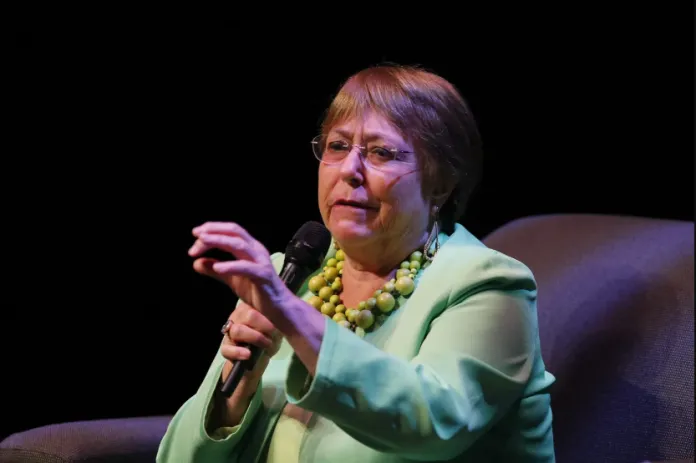Introduction
In the wake of Venezuela’s recent elections, which saw Nicolás Maduro re-elected for a third term, a significant call for transparency has emerged from international figures. Michelle Bachelet, former President of Chile and former United Nations High Commissioner for Human Rights, has voiced a strong demand for full transparency regarding the electoral process. Her statements emphasize the importance of integrity and openness in elections as crucial components for establishing a truly democratic society. This article provides an in-depth analysis of Bachelet’s demands, the electoral context in Venezuela, and the broader international response to the recent election results.
Michelle Bachelet’s Call for Transparency
A Critical View on Electoral Integrity
Michelle Bachelet, who served as Chile’s President from 2006 to 2010 and again from 2014 to 2018, has expressed profound concerns about the Venezuelan elections. Her call for transparency centers on the necessity of making all electoral records public to ensure the process reflects the genuine will of the people.
- Public Statement: In a letter released through her foundation, Horizonte Ciudadano, Bachelet underscored the significance of transparent and honest electoral processes. She highlighted that the publication of all electoral records from every polling station is vital for maintaining democratic integrity and commitment to truth.
- Historical Perspective: Bachelet’s appeal is rooted in her belief that historical experiences demonstrate the indispensable role of transparency and honesty in electoral processes. She argues that only through such practices can a society achieve true democracy and fairness.
Previous Involvement and Expertise
Bachelet’s familiarity with the situation in Venezuela adds weight to her statements. Her tenure as the UN High Commissioner for Human Rights (2018-2022) involved multiple visits to Venezuela, where she gained firsthand knowledge of the political and human rights landscape.
- Historical Context: Bachelet’s previous interactions with Venezuela and her direct experiences with the country’s political climate contribute to her informed perspective on the electoral issues currently at hand.
The Venezuelan Election Context
Election Results and Controversy
The recent Venezuelan elections, held on a Sunday, resulted in Nicolás Maduro being declared the winner with 51.2% of the votes based on 80% of the electoral records. This result has been met with widespread skepticism and criticism from the international community.
- Electoral Outcome: According to the initial and only public report from the National Electoral Council (CNE), Maduro’s main opponent, former diplomat Edmundo González Urrutia, received 44.2% of the votes. The report notably lacks details on the distribution of 2,394,268 votes that were not accounted for.
- Irregularities and Complaints: The opposition has raised concerns about potential irregularities in the vote count and has called for the publication of all electoral records. This demand for transparency is echoed by many regional leaders, including Brazil’s President Luiz Inácio Lula da Silva and Colombia’s President Gustavo Petro.
International Reactions
The international community’s response to the Venezuelan elections has been one of concern and demand for clarity. Leaders and organizations worldwide have scrutinized the electoral process and its results.
- Global Reactions: The demand for transparency is not limited to Bachelet’s statements. Various international leaders and organizations have voiced their dissatisfaction with the election process and its outcomes, further amplifying the call for a thorough examination of the results.
- Center for Carter’s Assessment: The Carter Center, which participated as an observer in the elections, criticized the process for not meeting international standards of electoral integrity. The center’s assessment further underscores the widespread doubts about the fairness of the elections.
The Importance of Transparency
Building Democratic Trust
Transparency in electoral processes is fundamental to establishing and maintaining democratic trust. The openness of the electoral system allows citizens to have confidence in the fairness and accuracy of the results.
- Democratic Principles: Transparent elections are a cornerstone of democracy. They ensure that electoral outcomes reflect the true will of the people and uphold the principles of fairness and accountability.
Addressing Electoral Concerns
For the Venezuelan elections, addressing concerns about transparency involves several key actions:
- Full Disclosure: Publishing all electoral records from every polling station is essential for verifying the accuracy of the reported results and addressing public concerns.
- Independent Verification: An independent review of the electoral process can help validate the results and ensure that any irregularities are identified and addressed.
The Broader Implications
Impact on Venezuelan Politics
The demand for transparency and the international response to the Venezuelan elections have significant implications for the country’s political landscape.
- Political Stability: Ensuring transparency in elections can contribute to political stability by addressing public concerns and fostering trust in the electoral process.
- Government Legitimacy: The credibility of the election results impacts the legitimacy of the government and its ability to govern effectively.
International Diplomatic Relations
The handling of the Venezuelan elections and the call for transparency also affect international diplomatic relations.
- Diplomatic Pressures: The international demand for transparency can influence diplomatic interactions and relationships between Venezuela and other nations.
- Global Standards: The situation highlights the importance of adhering to international standards of electoral integrity and the role of the global community in upholding democratic principles.
Conclusion
Michelle Bachelet’s call for full transparency in the Venezuelan elections underscores the critical importance of honesty and openness in electoral processes. The ongoing scrutiny and demands for clarity reflect broader concerns about democratic integrity and the need for transparent governance.
As Venezuela navigates the aftermath of the elections, the international community continues to watch closely, emphasizing the need for a comprehensive examination of the results and adherence to democratic standards. The resolution of these issues will have lasting implications for Venezuela’s political stability and its relations with the global community.
For more insights and updates on regional and international affairs, visit our Latin America section.


